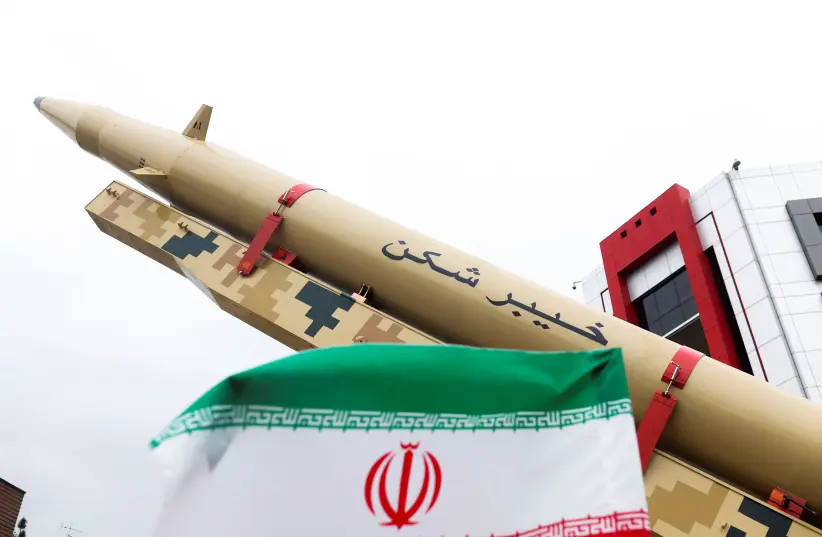
Iran has already been striking the US in the region in dozens of rocket and drone attacks over the past year.
Reports over the weekend said that Iran was upping its rhetoric against any sort of US-backed air defense pact that might link Israel and several Arab countries together. Ostensibly, such cooperation would be defensive, but Iran and its proxies are currently the only real threat to the region.
Iran uses proxies to launch drones and missiles across the region, which includes terrorizing the Kurdish region of Iraq, using drones in Syria to threaten Israel and US forces, basing drones in Yemen and Iraq to threaten the Gulf, and also threatening shipping.
Iran has been privy to reports in Western media about this potential cooperation. However, its recent statements offer the same boilerplate attacks on “Zionists” as in the past. The Islamic Republic appears to have upped the rhetoric on the eve of US President Joe Biden’s visit. The latest threats imply that if a pact does come into being and if it “threatens” Iran then Tehran might strike the US or other targets.
However, Iran has already been striking the US in the region in dozens of rocket and drone attacks over the past year.
Iran would prefer to put hurdles in the way of any cooperation by using its contacts in Qatar, Jordan, Kuwait and other states. It also knows that any real cooperation, in the form of a “pact” or something that is public and official, requires a lot of work. It’s one thing for countries to share information or even conduct defense deals; it is another to have a real working agreement.
Will the concept of a “Middle East Air Defense Alliance” group come into being? This is the terminology that has been reported in Reuters and other media since June. Defense Minister Benny Gantz has backed this concept. US lawmakers also want to push the “DEFEND” act which is supposed to build on the Abraham Accords. Washington also wants to counter Iranian drones.
Israel and its new friends in the Gulf have indeed had many more meetings in recent years. Gantz recently said there had been 150 of those meetings and some $3 billion in arms sales. That’s a large amount. But arms sales and meetings don’t necessarily make a strong pact and it remains to be seen what exactly the Biden visit will lead to.
Iran’s court
So the ball returns to Iran’s court. Tehran has been outspoken here and there about opposition to any kind of defensive grouping. The regime is hostile to the Abraham Accords in general, so it’s unclear how its existing threats, actions and opposition will increase. Iran must tread carefully because, while it enjoys some impunity to carry out attacks in Syria and Iraq, too many actions aimed at destabilizing the Gulf could result in uniting countries against it.
A hint of how Iran has to tread carefully can be seen in reports over the weekend that Britain’s Royal Navy seized weapons that Iran was smuggling via speedboat in January and February.
The navy says one of its warships seized Iranian weapons, including surface-to-air missiles and engines for cruise missiles, from smugglers in international waters south of Iran early this year. Tehran thus acts outside the norms of international law, but it is being closely tracked in its behavior.
Iran must consider, before acting, how it will cause the US, UK, France and others to be united against its actions. In addition, with the Iran deal talks continuing, Tehran must weigh whether it wants to upend the potential deal or use its threats to achieve one. Pushing countries in the region together into forming a defensive alliance by provoking and escalating against them could harm Iran’s interests.
Iran therefore must consider this Catch-22: The more it acts to oppose a defensive pact, the more it gives reason for that pact’s formation. But if the Islamic Republic does nothing, then the countries seeking to form the pact may feel they face no opposition and so may move forward anyway.
